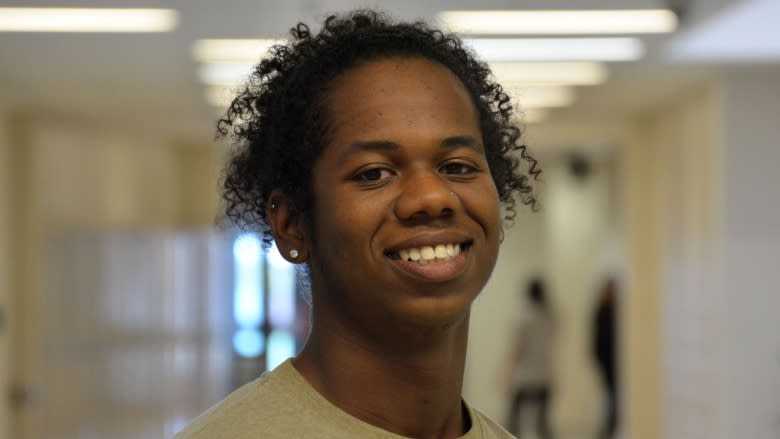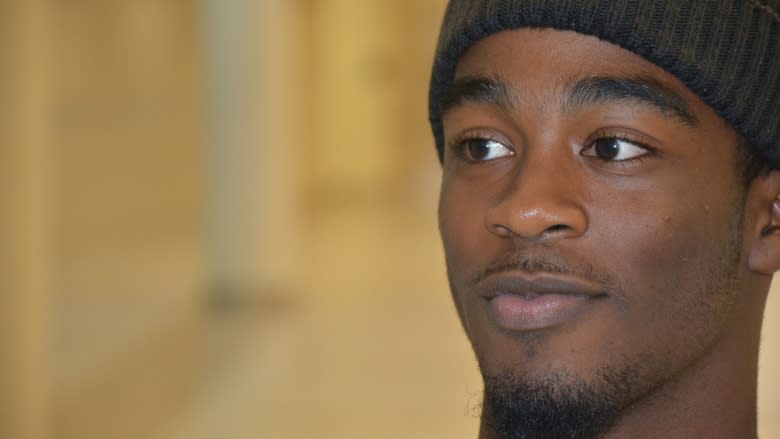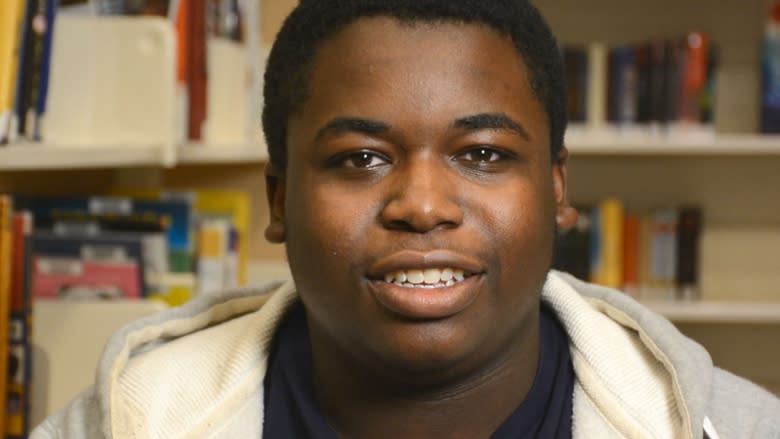Black students in Peel discuss classroom challenges
What's it like being a black kid in a Peel region high school?
It's complicated, according to four Grade 12 students at Fletcher's Meadow Secondary School who spoke candidly with CBC News after the Peel District School Board published a report that found black students often face discrimination, bias and lowered expectations.
All four of the young men said they've been treated well at their school. But sometimes, they said, when they look closely they can perceive differences between themselves and students who aren't black.
Here's some of what they had to say about their experiences, in their own words:
Rayshawn Ross
"They treat you in a harsher way. They expect you to do worse on things. Or maybe don't expect you to do well on things in general, at all.
In regular school life there's just more of that pressure on you. Being black, they're just like: 'He's not really going to amount to much.'"
Ross, who said he scores in the high-70s or 80s in his classes, said he's hoping the school board will make some changes so that all students are treated equally in the classroom. Peel's board said it plans to introduce mandatory bias and anti-racism training for teachers and other staff, something Ross supports.
"Something should be done," he said.
Jahi Neufville
"Some people tell me that I'm not like the other people, like the other ones. When I'm in class and I'm doing something I'm not supposed to be doing, like on my phone or something like that, the teachers will call me out on it.
"But with other people that most people would label gang members" — they're not, he says, they're his friends — "the teachers wouldn't even say anything because they're kind of scared to say anything to them."
Neufville said that fear also exists within the student body. Sometimes, he notices other students being afraid to make eye contact. He said while some kids mix it up, most tend to hang out with people of the same race.
"Honestly, if you don't pay a lot of attention to it you can feel like you're normal. But, if you look at the subtle things happening, you're like, 'Whoa, – there's a little bit of a segregation thing going on,'" he said.
Jahmal Smith
"I've been picking courses that seem quite challenging. Instead of encouraging me ... I realized that a lot of the teachers and guidance counsellors have been telling me that it's probably too hard for me or way too hard, out of my league — so I kind of feel kind of discriminated against.
The other kids, it's like, 'Oh yeah, you can try it if you want to.'"
Deep down, Jahmal Smith said, he believes the colour of his skin played a role in what teachers told him.
That said, he believes his experiences at school haven't been as bad as others, they're just a challenge he has to find a way around.
Jace Smith
"I don't really think of it as being different from anybody else, but I guess people look at you kind of differently. People see me and they kind of think automatically that I might be, maybe trouble or in a gang or something like that. But that's the complete opposite of me."
Jace Smith said he's never encountered an outwardly racist teacher and said at his school, he believes most teachers look at students as blank slates.
However, he's acutely aware that there's pressure to behave well.
"It's all about how you carry yourself," he said.





